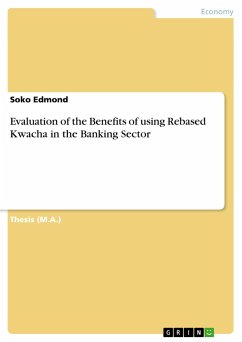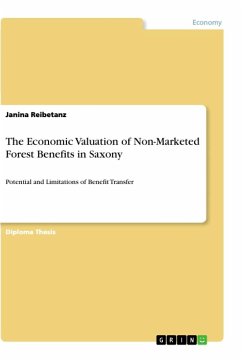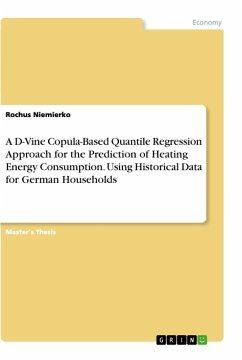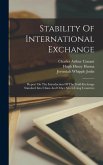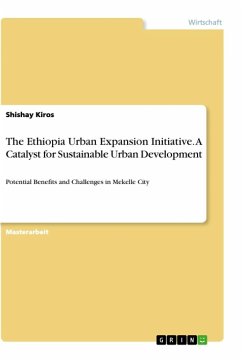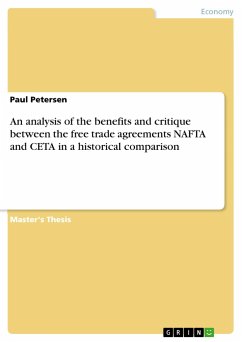Thesis (M.A.) from the year 2014 in the subject Economics - Finance, grade: 3.39/5, , course: MASTER OF BUSINESS ADMINISTRATION IN FINANCE, language: English, abstract: Following the Bank of Zambia's decision to rebase (redenominate) the Kwacha in 2012, this study was conducted to evaluate the benefits of using the rebased Kwacha in the banking sector. The study was guided by the following research objectives: To establish whether the use of rebased kwacha has simplified the accounting records in Commercial Banks, to find out whether rebasing of kwacha has reduced the transaction costs in the banking sector, to investigate whether the rebased kwacha has improved the operations of the automated teller machine (ATM) of the banks, to analyze as to whether the use of rebased kwacha has brought efficiency in the payment systems in banks and to investigate if the use of rebased kwacha made banking services more convenient and reliable.The researcher used both primary and secondary data. The primary data was collected from commercial bank staff of which 18 of 19 banks in Zambia participated by the use of self-administered questionnaires and semi-structured interviews. Secondary data was obtained from published materials, which included journals, textbooks magazines, internal reports and newspapers. The quantitative data was analyzed using Statistical Packages for Social Sciences (SPSS) and results presented.Qualitative data was analyzed using the interview responses from the bank officials.Therefore, generally, with the combination of both quantitative and qualitative analyses, the research study broken into several hypotheses produced the following results:-The use of rebased kwacha has simplified the accounting records in the banking sector in Zambia.-The use of rebased kwacha has failed to reduce the transaction costs in the banking sector.-The use of rebased kwacha has failed to improved ATM operations in the banking sector.-The use of rebased kwacha has successfully resulted in Payment System Efficiency in the Banking sector.-The rebasing process has successfully made banking services be more Reliable and Convenient.The researcher made the following recommendations for further research:-The impact of the rebasing process on Foreign Direct Investment and investor confidence.-Critical examination of how rebasing has impacted on the performance of kwacha on the foreign exchange market.-Impact of rebasing of kwacha to the Zambian marketeers:Case study Chisokone Market in Kitwe or City Market in Lusaka or any large market place in Zambia.

